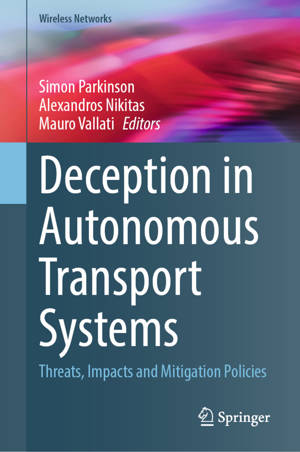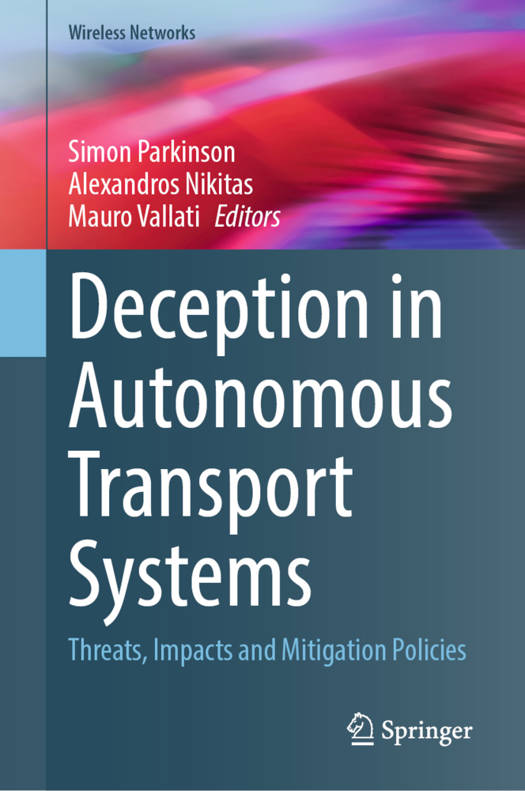
- Retrait gratuit dans votre magasin Club
- 7.000.000 titres dans notre catalogue
- Payer en toute sécurité
- Toujours un magasin près de chez vous
- Retrait gratuit dans votre magasin Club
- 7.000.000 titres dans notre catalogue
- Payer en toute sécurité
- Toujours un magasin près de chez vous
Deception in Autonomous Transport Systems
Threats, Impacts and Mitigation Policies
147,95 €
+ 295 points
Description
This book provides a comprehensive overview of deception in autonomous transport systems. This involves investigating the threats facing autonomous transport systems and how they can contribute towards a deceptive attack, followed by their potential impact if successful, and finally, how they can be mitigated. The work in this book is grouped into three parts. This first part focuses on the area of smart cities, policies, and ethics. This includes critically appraising the trade-off between functionality and security with connected and autonomous vehicles. The second discusses a range of AI applications in the wider field of smart transport and mobility, such as detecting anomalies in vehicle behaviour to investigating detecting disobedient vehicles. Finally, the third part presents and discusses cybersecurity-related aspects to consider when dealing with Connected and Autonomous Vehicles (CAVs) and smart urban infrastructure. This includes analysing different attacks to investigating secure communication technologies. CAVs are a game-changing technology with the potential to transform the way transport is perceived, mobility is serviced, travel ecosystems 'behave', and cities and societies as a whole function. There are many foreseen safety, accessibility and sustainability benefits resulting from the adoption of CAVs because of their ability, in theory, to operate error-free and collaboratively, ranging from accident prevention, congestion reduction and decreased carbon emissions to time savings, increased social inclusion, optimised routing, and better traffic control. However, no matter what the expected benefits are, CAVs are at the same time susceptible to an unprecedented number of new digital and physical threats. The severity of these threats has resulted in an increased effort to deepen our understanding of CAVs when it comes to their safety and resilience. In this complex and multi-faceted scenario, this book aims to provide an extensive overview of the risks related to the malicious exploitation of CAVs and beyond, the potential ways in which vulnerabilities can be exploited, prevention and mitigation policies and techniques, and the impact that the non-acceptance of Connected and Autonomous Mobility can have on the Smart City agenda.
This book targets researchers, practitioners, and advanced-level students in computer science and transport engineering.
Spécifications
Parties prenantes
- Editeur:
Contenu
- Nombre de pages :
- 195
- Langue:
- Anglais
- Collection :
Caractéristiques
- EAN:
- 9783031550430
- Date de parution :
- 14-06-24
- Format:
- Livre relié
- Format numérique:
- Genaaid
- Dimensions :
- 155 mm x 235 mm






